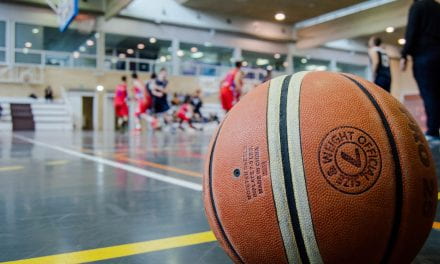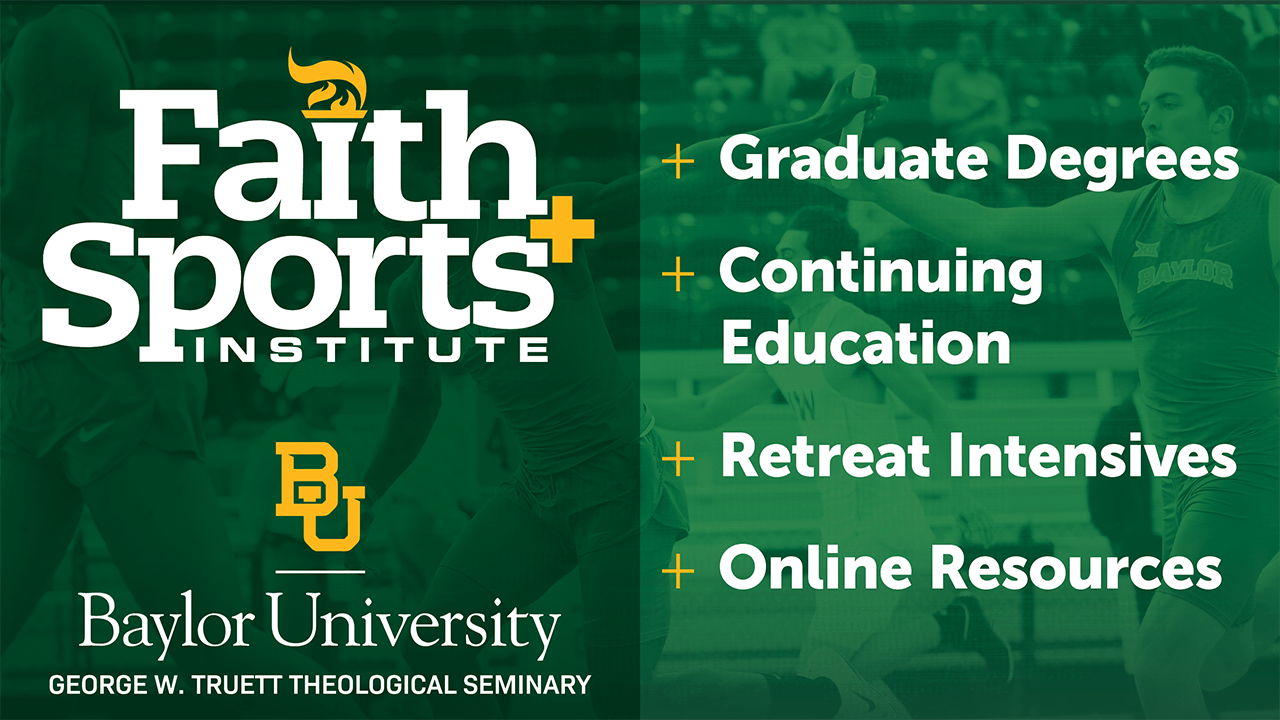
This guest post comes from Dani Price, Assistant Softball Coach for Georgia Southern. Dani graduated from Truett Seminary’s Sports Ministry Program, which is part of the Faith & Sports Institute.
Dani Price
I knew the feeling as an athlete. I would look up my statistics after a good or bad weekend to see where I compared within the team or conference. I would impatiently wait for an encouraging word from my coach or teammates. I would listen for applause from the stands and scour the All-Conference list at the end of the year.
Perhaps this was harmless or perhaps it was selfish. But there’s one thing I know for sure: it was unfulfilling. And now that I’m a coach, I can see athletes doing the same thing, looking for those little glimpses of approval or affirmation, wondering if what they have done is good enough.
Good enough. I get a twinge of pain thinking about that phrase. Who holds that measuring stick and where can we find the answer? Whether in sports or the rest of life, we search for this “good enough.”
Question is, where are we looking? Are we looking to our teammates and coaches? Are we comparing ourselves to our opponents, hoping that if the statistics next to our name are a little bit better, then we’re at least a little bit closer to “good enough”?
I’ve learned a lot about my answers to those questions by reflecting on the story of Bartimaeus from the Gospel of Mark.
Throughout the book, Jesus is journeying with his disciples. He is teaching and healing and ultimately walking toward his own crucifixion. But in Chapter 10, we are introduced to a blind beggar named Bartimaeus sitting by the road. Bartimaeus is looking to get something—just a little something to help fill his cup—from everyone who walks by.
Doesn’t that look like us sometimes? We’re hoping for a small word of affirmation, a glance of approval, or more likes on social media to help fill our cup and keep us moving. Something that will echo “good enough.”
In a crowded Jericho after hearing Jesus approach, Bartimaeus begins calling for him. Shouting for him. Shouting for mercy. Shouting, even though he is being hushed by those around him. I think this is the moment I see Bartimaeus’ faith. He begged to be filled by those who passed him by, and yet as they try to stifle his voice, his persistence pushes him to yell for Jesus all the more desperately.
Jesus, not hindered by the crowds or the busyness of his own journey, hears the cries and calls Bartimaeus over to him. The author of Mark makes sure to note that Bartimaeus throws off his cloak. Before Jesus ever performs the miracle, Bartimaeus leaves behind all he owns for a Jesus who stops for him. Once again, we see Bartimaeus’ faith, his confident and expectant hope that to Jesus, Bartimaeus wasn’t just “good enough.” He was valued.
Jesus asks a familiar question: “What do you want me to do for you?” Bartimaeus’ faith leads him to ask Jesus to restore his sight. And Jesus answers. He tells Bartimaeus, “Go. Your faith has made you well.”
There was no more reason to beg, and it wasn’t because Bartimaeus could see. It was because Bartimaeus knew the source of his new vision and the source of his full cup. To those around him, Bartimaeus was just a blind beggar. But to Jesus he was valuable, worthy, and full of faith.
It’s interesting to compare Bartimaeus’s response to Jesus with the story that comes right before it. In Mark 10:35-45 we see Jesus ask two of his disciples, James and John, the same question he asked Bartimaeus: “What do you want me to do for you?”
“Grant that we may sit, one on your right and one on your left, in your glory,” they ask him.
Their answer reflected their insecurities, their need to prove their own worth by comparing themselves to others. Despite walking with Jesus, they were beggars for affirmation, blind to the Jesus they had been following and his overflowing love for them.
Where is it we are seeking to find “good enough”? If it’s titles, applause, or approval from others, we will miss out on the true source of our full cup. Are we like James and John, seeking to assert our authority over others? Or are we like Bartimaeus, aware of our own weakness and yet confident in a God who meets our needs?
There’s a scene near the end of the movie Cool Runnings when Jamaica’s bobsled coach—a man who had once cheated to win a gold medal in the Olympics—is asked by his athlete why he cheated. The coach explains that even though he had it all, he felt like he had to keep on winning. “A gold medal is a wonderful thing,” he tells the athlete. “But if you’re not enough without it, you’ll never be enough with it.”
“Coach,” the athlete responds. “How will I know if I’m enough?”
I wonder if that’s a question you’ve ever asked yourself?
Are you living from a cup that is barely full? Are you questioning whether you are worth stopping for in a crowded Jericho? Are you wondering what it will take to get the approval of those around you, trying to identify what accomplishments and statistics you need in order to finally feel “good enough”?
If so, you’re in good company; Jesus’s disciples can relate. But let me remind you that Bartimaeus’s encounter with Jesus was his last miracle before dying on the cross—for Bartimaeus, for James and John, for you and me.
I’d say that doesn’t just shout “good enough,” but also valued, loved, and fulfilled.
 About the author: Dani Price received her Master of Divinity from Truett Seminary in 2017 where she was involved in the Sports Ministry Program. During her time at Truett, she also served as the Volunteer Assistant Coach for Baylor Softball and helped lead the Bears to three NCAA Regional Tournaments and the 2019 Women’s College World Series. She is currently the Assistant Softball Coach at Georgia Southern University in Statesboro, GA, and is passionate about ministering to athletes through her role as a coach.
About the author: Dani Price received her Master of Divinity from Truett Seminary in 2017 where she was involved in the Sports Ministry Program. During her time at Truett, she also served as the Volunteer Assistant Coach for Baylor Softball and helped lead the Bears to three NCAA Regional Tournaments and the 2019 Women’s College World Series. She is currently the Assistant Softball Coach at Georgia Southern University in Statesboro, GA, and is passionate about ministering to athletes through her role as a coach.





